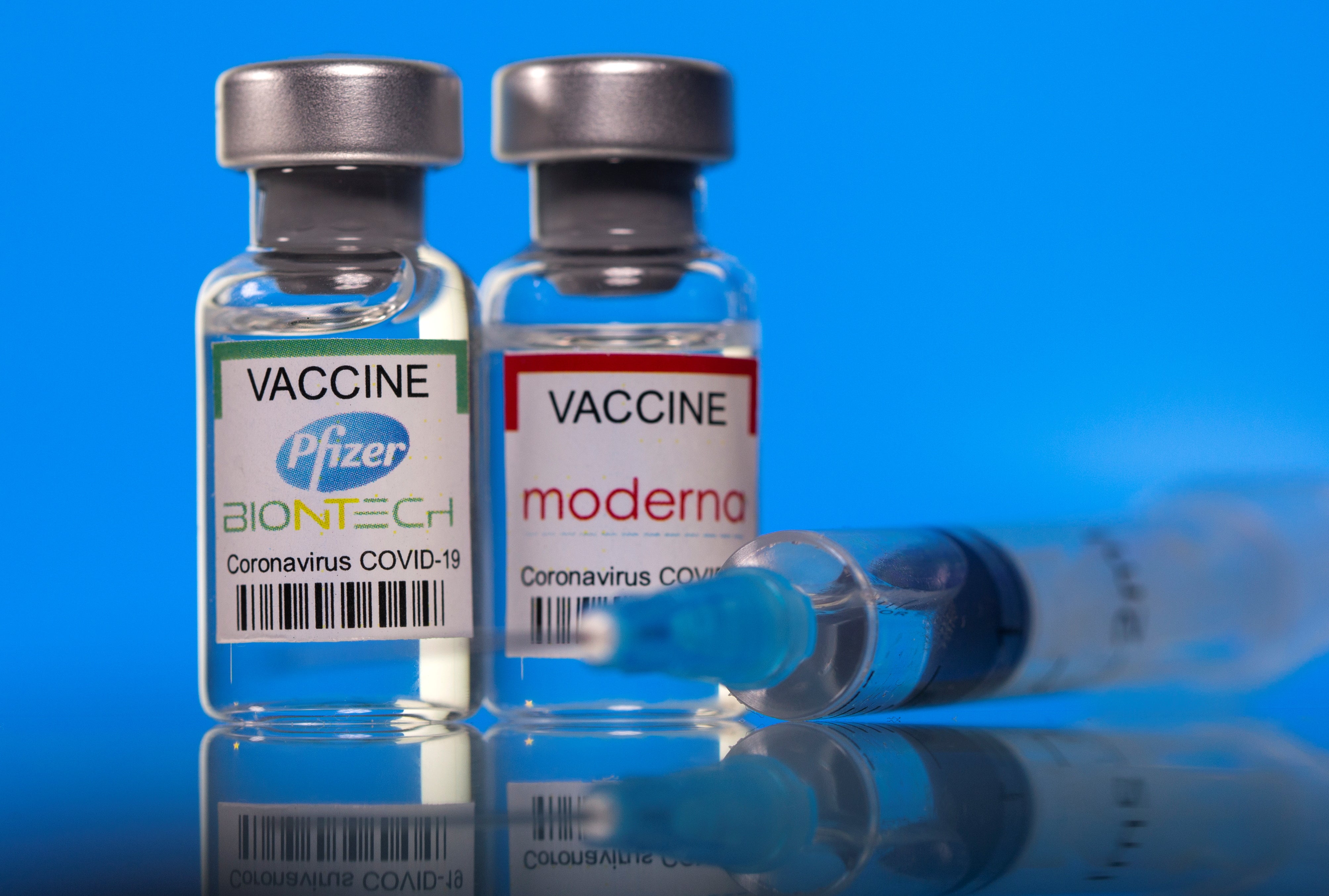Covid vaccines may have lower efficacy in people with blood cancers, new studies suggest
The treatment appears to have a negative effect on jab response, Liam James writes

Certain Covid vaccines may be less effective for blood cancer patients, two new studies suggest.
The mRNA vaccine Pfizer was found to provide less of an immune response among sufferers of chronic lymphocytic leukemia (CLL) and multiple myeloma. Scientists said the same result was expected with the other mRNA vaccine Moderna.
Two studies published in Blood, the American Society of Haematology, journal on Friday recorded a difference in response between healthy people and those suffering from the blood cancers.
The first study, involving 167 CLL patients, found just four in 10 patient developed antibodies against Covid-19 after two doses of the vaccine, while all healthy control subjects did.
"Overall, the response rate to the vaccine was significantly less than what we see in the general population, which is most likely attributed to the presence of cancer itself and certain CLL treatments," said lead author Dr Yair Herishanu, associate professor in haematology and head of the CLL service at the Tel Aviv Sourasky Medical Center.
The research also revealed wide variations in response among CLL patients based on the stage of their cancer treatment process.
"It would seem that if you are untreated, in what we call 'watch and wait' or do not have active disease, you can gain more benefit from the vaccine. Patients who responded the best were in remission, which makes sense because their immune system had a chance to recover, Dr Herishanu said.
Just 16 per cent of people undergoing treatment for an active cancer developed antibodies compared with 79 per cent of those who were in remission.
People who had been diagnosed with CLL but not yet begun treatment had a 55 per cent response rate. Researchers scanned for antibodies using the Roche Anti-Sars-CoV-2 test two weeks after administering the second dose.
Testing also found that younger people, women and people with normal immunoglobin levels at the time of vaccination responded better to the mRNA jab.
Blood cancer patients were not involved in clinical trials while the vaccines were under development but the study authors said it is important to understand their response as they are at high risk of severe illness and complications from the coronavirus.
Despite the findings, Dr Herishanu said, CLL patients should still get a vaccine if offered.
"Equally important is continuing to take precautions - wearing a mask, avoiding crowds, keeping a social distance, and being sure close contacts get vaccinated against Covid-19," he said.
The second study focused on the vaccine response of elderly patients with multiple myeloma after one dose and presented similar findings.
Research was carried out by a team from the National and Kapodistrian University of Athens led by Dr Evangelos Terpos.
Only 25 per cent of the multiple myeloma patients developed antibodies 22 days after receiving the jab, while 54.8 per cent of the control subjects did.
Study authors said the results suggest that myeloma treatment seems to negatively affect the production of antibodies after a single dose, although more testing is needed to further understand this effect.
They also said that a second vaccine dose is essential for elderly multiple myeloma patients to develop adequate resistance to the virus.
Join our commenting forum
Join thought-provoking conversations, follow other Independent readers and see their replies
Comments